This year I finished my master’s degree work at Knox Seminary. It was a five-year process, and I loved every bit of it. The one downside was that I was so busy reading books for my classes. All the required reading for those classes was phenomenal. I enjoyed them all. The downside was not the content of the books I was required to read but the fact that my personal want to read stack only grew and grew over five years. This year I set a new personal best in terms of books read but would add in terms of content the books I read this year were probably the best I have read. To narrow down my top 10 is no easy task. Here is my attempt
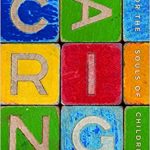 10 – Caring for the Souls of Children – Amy Baker This is book is a must-own for anyone who works with kids or has kids of their own. I have never read a book that has, at its core, the practical tools to help kids in difficult circumstances matched with strong gospel application.
10 – Caring for the Souls of Children – Amy Baker This is book is a must-own for anyone who works with kids or has kids of their own. I have never read a book that has, at its core, the practical tools to help kids in difficult circumstances matched with strong gospel application.
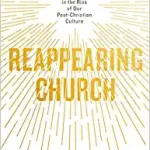
9 – Reappearing Church – Mark Sayers – Mark Sayers is one of the few people out there who has a real grasp of the emergence of the intersection of secular culture and the gospel and how we can live faithful lives in exile.
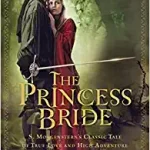 8 – The Princess Bride – William Goldman – As someone who would watch The Princess Bride rewind and watch again during the age of VCR’s. I have seen TPB more times than I can count. I have the entire movie memorized. Massive Princess Bride fan was expecting to love the film more than the book, and I liked them both. As a fan of the film, the book filled in some things that were left out of the movie, but the performances by the actors in The Princess Bride make it one of my favorite movies of all time.
8 – The Princess Bride – William Goldman – As someone who would watch The Princess Bride rewind and watch again during the age of VCR’s. I have seen TPB more times than I can count. I have the entire movie memorized. Massive Princess Bride fan was expecting to love the film more than the book, and I liked them both. As a fan of the film, the book filled in some things that were left out of the movie, but the performances by the actors in The Princess Bride make it one of my favorite movies of all time.
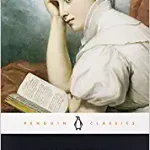 7 – Pride and Prejudice – Jane Austen – I have become a huge Jane Austen fan. With some persuasion from Dr. Karen Swallow Prior, I have begun to read her corpus of work. Her understanding of Christian virtue placed in the context of story is as powerful as it is enjoyable.
7 – Pride and Prejudice – Jane Austen – I have become a huge Jane Austen fan. With some persuasion from Dr. Karen Swallow Prior, I have begun to read her corpus of work. Her understanding of Christian virtue placed in the context of story is as powerful as it is enjoyable.
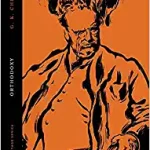 6 – Orthodoxy – G.K. Chesterton – My classics professor once said that reading a classical work for the first time only prepares you to read it for the first time the second time you read it. This was true with several classic pieces I have read and reread. Orthodoxy was no different. I found the second reading more enjoyable and thought-provoking than the first reading. I love this quote from Chesterton
6 – Orthodoxy – G.K. Chesterton – My classics professor once said that reading a classical work for the first time only prepares you to read it for the first time the second time you read it. This was true with several classic pieces I have read and reread. Orthodoxy was no different. I found the second reading more enjoyable and thought-provoking than the first reading. I love this quote from Chesterton
“God is strong enough to exult in monotony. It is possible that God says every morning, “Do it again” to the sun; and every evening, “Do it again” to the moon. It may not be automatic necessity that makes all daisies alike; it may be that God makes every daisy separately, but has never got tired of making them. It may be that He has the eternal appetite of infancy; for we have sinned and grown old, and our Father is younger than we. The repetition in Nature may not be a mere recurrence; it may be a theatrical encore.”
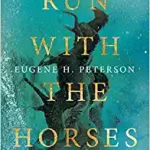 5 – Run with the Horses – Eugene Peterson – I am a huge Peterson fan. His style of writing is powerful, profound, and poetic. Run with the Horses is no different. I read this book devotionally as I read through the book of Jeremiah. This book came at a very timely season of life and ministry where I needed to hear the message of Jeremiah and apply it to my heart.
5 – Run with the Horses – Eugene Peterson – I am a huge Peterson fan. His style of writing is powerful, profound, and poetic. Run with the Horses is no different. I read this book devotionally as I read through the book of Jeremiah. This book came at a very timely season of life and ministry where I needed to hear the message of Jeremiah and apply it to my heart.
“The most important thing in Jeremiah’s life was God – not comfort, not applause, not security, but the living God. What he did fear was worship without astonishment, religion without commitment. He feared getting what he wanted and missing what God wanted.”
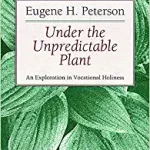 4 – Under the Unpredictable Plant – Eugene Peterson – This is a book from Peterson’s 3 part book series for the vocation of pastoral ministry. In Under the Unpredictable Plant, Peterson tackles the vocational Holiness of the pastor and his congregation. Although this book was written thirty years ago, it has more relevance today than the day it was written. In this book, Peterson calls pastors to live lives set apart and holy and, in turn to call their people to do the same.
4 – Under the Unpredictable Plant – Eugene Peterson – This is a book from Peterson’s 3 part book series for the vocation of pastoral ministry. In Under the Unpredictable Plant, Peterson tackles the vocational Holiness of the pastor and his congregation. Although this book was written thirty years ago, it has more relevance today than the day it was written. In this book, Peterson calls pastors to live lives set apart and holy and, in turn to call their people to do the same.
“It is interesting to listen to the comments that outsiders, particularly those from Third World countries, make on the religion they observe in North America. What they notice mostly is the greed, the silliness, the narcissism. They appreciate the size and prosperity of our churches, the energy, and the technology, but they wonder at the conspicuous absence of the cross, the phobic avoidance of suffering, the puzzling indifference to community and relationships of intimacy.”
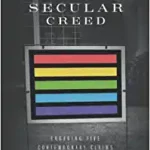 3 – Secular Creed – Rebecca Mclaughlin – In this short but powerful book Rebecca lovingly and biblically dissects the creedal mantras of our current secular moment. This book must get in the hands of our students in Middle School, High School, and College. Our kids are being inundated with the narrative that to be loving, we must proclaim Black Lives Matter, Love is Love, Women’s Rights are Human Rights, We are all Immigrants, and Diversity Makes Us Stronger. McLaughlin takes care to loving address these truths with care and truth. She tells her children that
3 – Secular Creed – Rebecca Mclaughlin – In this short but powerful book Rebecca lovingly and biblically dissects the creedal mantras of our current secular moment. This book must get in the hands of our students in Middle School, High School, and College. Our kids are being inundated with the narrative that to be loving, we must proclaim Black Lives Matter, Love is Love, Women’s Rights are Human Rights, We are all Immigrants, and Diversity Makes Us Stronger. McLaughlin takes care to loving address these truths with care and truth. She tells her children that
“we, as Christians, we believe that black lives matter because they matter to Jesus. We don’t believe that love is love but that God is love and that he gives us glimpses of his love through different kinds of relationships. We believe women’s rights are human rights, because God made us – male and female – in his image; and for the same reason, we believe that babies in the womb have rights as well. We believe God has a special concern for single mothers, orphans, and immigrants, because Scripture tells us so again and again. And we believe that diversity does indeed make us stronger, because Jesus calls people from every tribe and tongue and nation to worship him as one body together.”
All I can say to that is amen and amen.
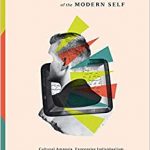 2 – The Rise and Triumph of the Modern Self – Carl Trueman – Trueman does a masterful job weaving history, philosophy, and theology together to paint a brilliant picture for us of how we have come to the secular age. Dr. Trueman explains how we have arrived at this moment by way of the sexual revolution. He explains that we have come to be a society that is captivated, motivated, and completely devoted to the idea of expressive individualism. His cultural analysis is dead on. He believes that his book introduces the discussions we need to have in our culture today. I would argue he lays out a template for dissecting and engaging our modern mess. He states in the conclusion of his introduction,
2 – The Rise and Triumph of the Modern Self – Carl Trueman – Trueman does a masterful job weaving history, philosophy, and theology together to paint a brilliant picture for us of how we have come to the secular age. Dr. Trueman explains how we have arrived at this moment by way of the sexual revolution. He explains that we have come to be a society that is captivated, motivated, and completely devoted to the idea of expressive individualism. His cultural analysis is dead on. He believes that his book introduces the discussions we need to have in our culture today. I would argue he lays out a template for dissecting and engaging our modern mess. He states in the conclusion of his introduction,
“My aim is to explain how and why a certain notion of the self has come to dominate the culture of the West, why this self finds its most obvious manifestation in the transformation of sexual mores, and what the wider implications of this transformation are and may well be in the future. Understanding the times is a precondition of responding appropriately to the times. And understanding the times requires a knowledge of the history that has led up to the present.”
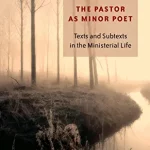 1 – The Pastor as Minor Poet – Craig Barnes – This was the best book I have ever read on pastoral ministry. It was by far the best book I read this year. Barnes’ work is a brilliant reminder that pastors, we must define our lives and work by what the gospel calls us to do. If we don’t clearly define what it means to be a pastor, we will invariably allow others to do this for us. Unfortunately, the present job description of the pastor is formed more by the cultural elements of pragmatism and leadership ideas than by the biblical framework of faithfulness set out for us in Scripture. Barnes says, “contemporary pastors are tempted to measure their success, not to mention fulfillment, precisely by how well-liked they are. That is because even the clergy function in a society that defines individuals and certainly leaders by their ability to fulfill expectations.” Every pastor and their spouse should read Pastor as Minor Poet. For the church to be the church pastors, must understand what it means to be a pastor.
1 – The Pastor as Minor Poet – Craig Barnes – This was the best book I have ever read on pastoral ministry. It was by far the best book I read this year. Barnes’ work is a brilliant reminder that pastors, we must define our lives and work by what the gospel calls us to do. If we don’t clearly define what it means to be a pastor, we will invariably allow others to do this for us. Unfortunately, the present job description of the pastor is formed more by the cultural elements of pragmatism and leadership ideas than by the biblical framework of faithfulness set out for us in Scripture. Barnes says, “contemporary pastors are tempted to measure their success, not to mention fulfillment, precisely by how well-liked they are. That is because even the clergy function in a society that defines individuals and certainly leaders by their ability to fulfill expectations.” Every pastor and their spouse should read Pastor as Minor Poet. For the church to be the church pastors, must understand what it means to be a pastor.
“It isn’t necessary for poets to have experienced in their own lives every tragedy that their parishioners will encounter. Of course. But it is very necessary for poets to know exactly what it feels like to have the world cave in, and then to be startled by the discovery of a resurrected life based solely on the work of Christ.
This means that parish poets have to pay attention to their own lives. They must go after their own life experiences and plunge into them in search of sacred meaning rather than run from the pain or numb themselves with busy distractions. How else can they awaken parishioners to the mystery at work within their own lives?”
The Rest
- Family Shepherds – Voddie Baucham
- Ten Words to Live By – Jen Wilkin
- True Community – Jerry Bridges
- The Great Gatsby – F. Scott Fitzgerald
- Is Christmas Unbelievable – Rebecca Maclaughlin
- Confronting Christianity – Rebecca Maclaughlin
- Lead – Paul David Tripp
- Bird by Bird – Anne Lamott
- The Answer – Randy Pope
- The Prodigal God – Timothy Keller
- The EOS Life – Gino Wickam
- Faith for Exiles – David Kinnaman & Mark Matlock
- The Bad Beginning – Lemony Snicket
- The Reptile Room – Lemony Snicket
- The Wide Window – Lemony Snicket
- The Miserable Mill – Lemony Snicket
- The Austere Academy – Lemony Snicket
- The Ersatz Elevator – Lemony Snicket
- The Vile Village – Lemony Snicket
- The Hostile Hospital – Lemony Snicket
- The Carnivorous Carnival – Lemony Snicket
- The Slippery Slope – Lemony Snicket
- The Grim Grotto – Lemony Snicket
- The Penultimate Peril – Lemony Snicket
- The End – Lemony Snicket
- How to be a Great Boss – Gino Wickman
- Pastor – William Willimon
- Rocket Fuel – Gino Wickman
- Traction – Gino Wickman
- Men and Women in the Church – Kevin DeYoung
- Resilient Ministry – Bob Burns
- The Making of Biblical Womanhood – Beth Allison Barr
- Holiness by Grace – Brian Chapell
- Christianity and Liberalism – J Gresham Machen
- The Princess and the Goblin – George McDonald
- Term Limits – Vince Flynn
- Garden City – John Mark Comer
- Fault Lines – Voddie Bauchman
- Embodied – Preston Sprinkle
- Freedom – Sebastian Junger
- Revival God’s way – Leonard Ravenhill
- The Bomber Mafia – Malcolm Gladwell
- The Roots of Endurance – John Piper
- Out of the Depths – John Newton
- The Horse and His Boy – C.S. Lewis
- Gospel Eldership – Robert Thune
- Like Father Like Son – Pete Alwinson
- A Readers Guide Through the Wardrobe – Leland Ryken
- No Man Left Behind – Patrick Morley
- A Burning in my Bones – Winn Collier
- InSourcing – Randy Pope
- Life Together – Dietrich Bonhoeffer
- Conversion and Discipleship – Bill Hull
- Gospel-Centered Discipleship – Jonathan Dodson
- The Abolition of Man – C.S. Lewis
- Volunteers that Stick – Jim Wideman
- The Masterplan of Discipleship – Robert Coleman
- Family Discipleship – Matt Chandler
- 10 Books Every Conservative – Benjamin Wilker
- The Princess Bride – William Goldman
- Taming of the Shrew – William Shakespeares
- The Magician’s Nephew – C.S. Lewis
- Slaughterhouse-Five – Kirt Vonnegut
- The Hallelujah Banquet – Eugene Peterson
- The Inferno – Dante Alighieri
- A Children’s Bible – Lydia Millet
- Return of the Prodigal Son – Henri Nouwen
- The Brothers K – David James Dunkin
- The Clouds – Aristophanes
- Engaging Critical Theory and Social Justice Theory – Dr. Neil Shenvi

